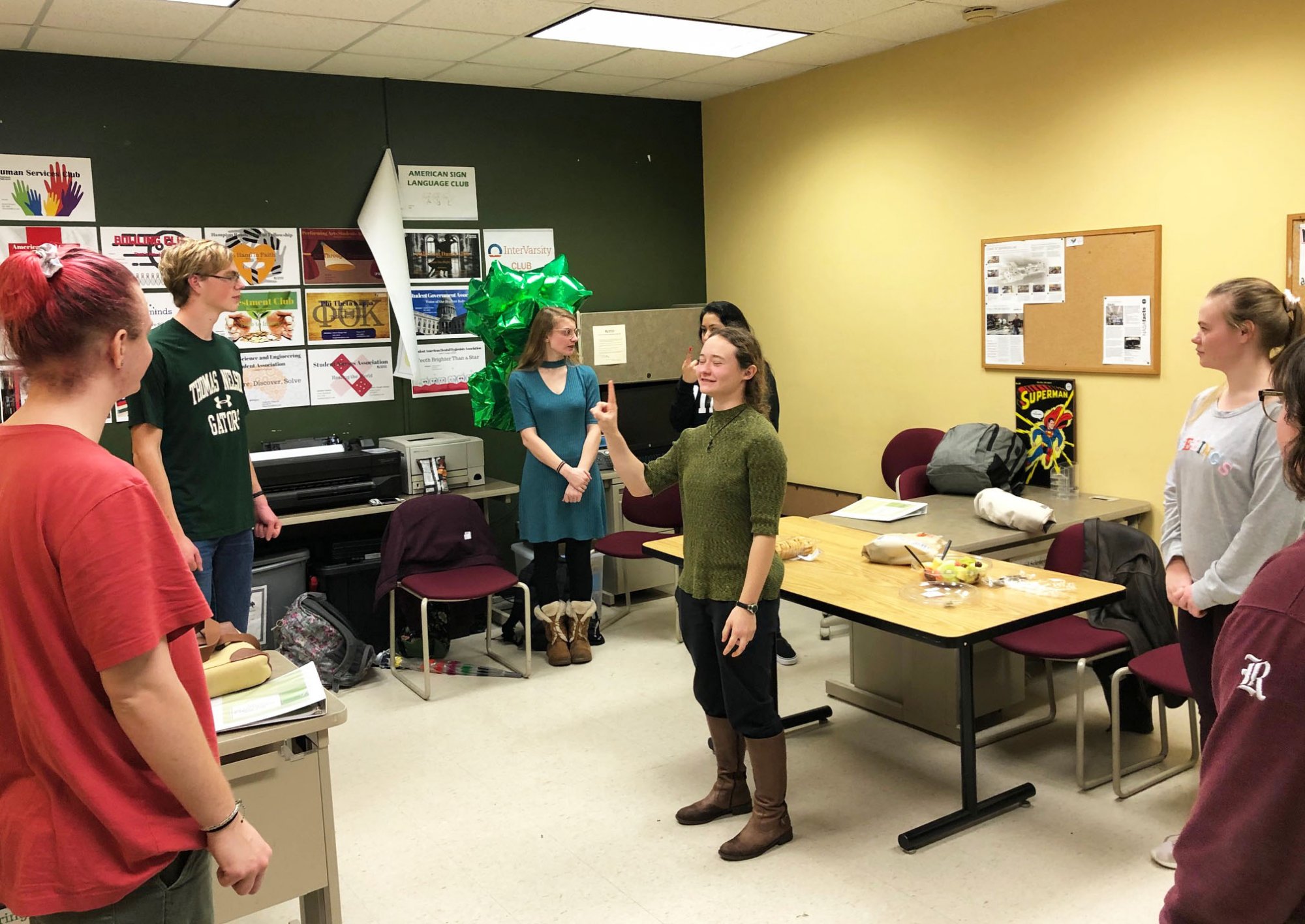Hampton Campus Now Has ASL Club

Foster Beech (center) works through an exercise in sign language at a recent meeting on the Hampton campus.
When an American Sign Language club was formed at Thomas Nelson's Historic Triangle campus last semester, the goal was to spread awareness of the culture. When Maddy Joye, a first-year student from Yorktown, learned there would be a club on the Hampton campus, she was drawn to it for different reasons.
"I talk with my hands all the time so I might as well have some use behind it," she said with a laugh. "And I talk fast, and I have a speech impediment."
She said a cousin used to have a neighbor who was deaf, so she learned some sign language when she was little. She doesn't remember much of it, so she's excited about this opportunity.
Foster Beech, who along with Joshua Findley founded the clubs on each campus, pointed out some more practical reasons for learning how to sign.
"You can talk while you're eating, across distances and when it's loud," Beech said.
In the club's first semester at the HT campus, there were about a dozen regular members attending meetings. Findley said when he and Beech discovered students were interested in having a club on the Hampton campus also, they went to work forming a second club.
"I had pitched the idea of possibly opening meetings in Hampton," Findley said. "Foster took the idea and ran with it, working up to the last day before winter break to help set things up for the spring semester."
Meetings are held at the Historic Triangle campus on Tuesdays from 3-4 p.m., and at the Hampton campus on Thursdays from 2-3 p.m. James Bryant, who teaches ethics, is the adviser at the HT campus, and Dr. Ji Hyon Mun, an engineering professor, is the adviser in Hampton. Bob Harrison, the head librarian in Hampton, and Kadisia Archer, from Student Activities, also played key roles in getting the Hampton club started.
Mun has no background with sign language, but admits being fascinated by it. She, too, has practical reasons for getting involved.
"I've never had any interaction with even a student," she said. "I thought we have students who are colorblind, maybe one day I'll get a student who needs assistance."
One of the nine people who attended the first meeting in Hampton was Michael Hogge, who is deaf. Since he's been signing for about 16 years, he was willing to assist Findley and Beech.
"I thought maybe I could help some of them learn sign language quicker," he said, adding people seem to pick it up faster if they learn finger spelling first.
In that first meeting, he said he didn't have to correct Findley or Beech too much.
"Maybe just a little bit."
Mun said the club presents a great opportunity for her as well as the students.
"It's a learning experience," she said. "It brings awareness to different types of disabilities that our student body may experience."
She attended the first gathering and enjoyed it.
"I was surprised so many people showed up to the meeting," she said. "I thought it was a good turnout."
She felt a little stressed, though, after learning so many signs. So what did she do?
"I went home and I practiced," she said.
Beech is hoping to work with the sign language club at the College of William & Mary to see if Thomas Nelson students can attend those meetings if they can't make the meetings at the HT campus. She also is hoping to raise money for a trip to Gallaudet University, which is a university for the deaf and hearing impaired in Washington, D.C.
